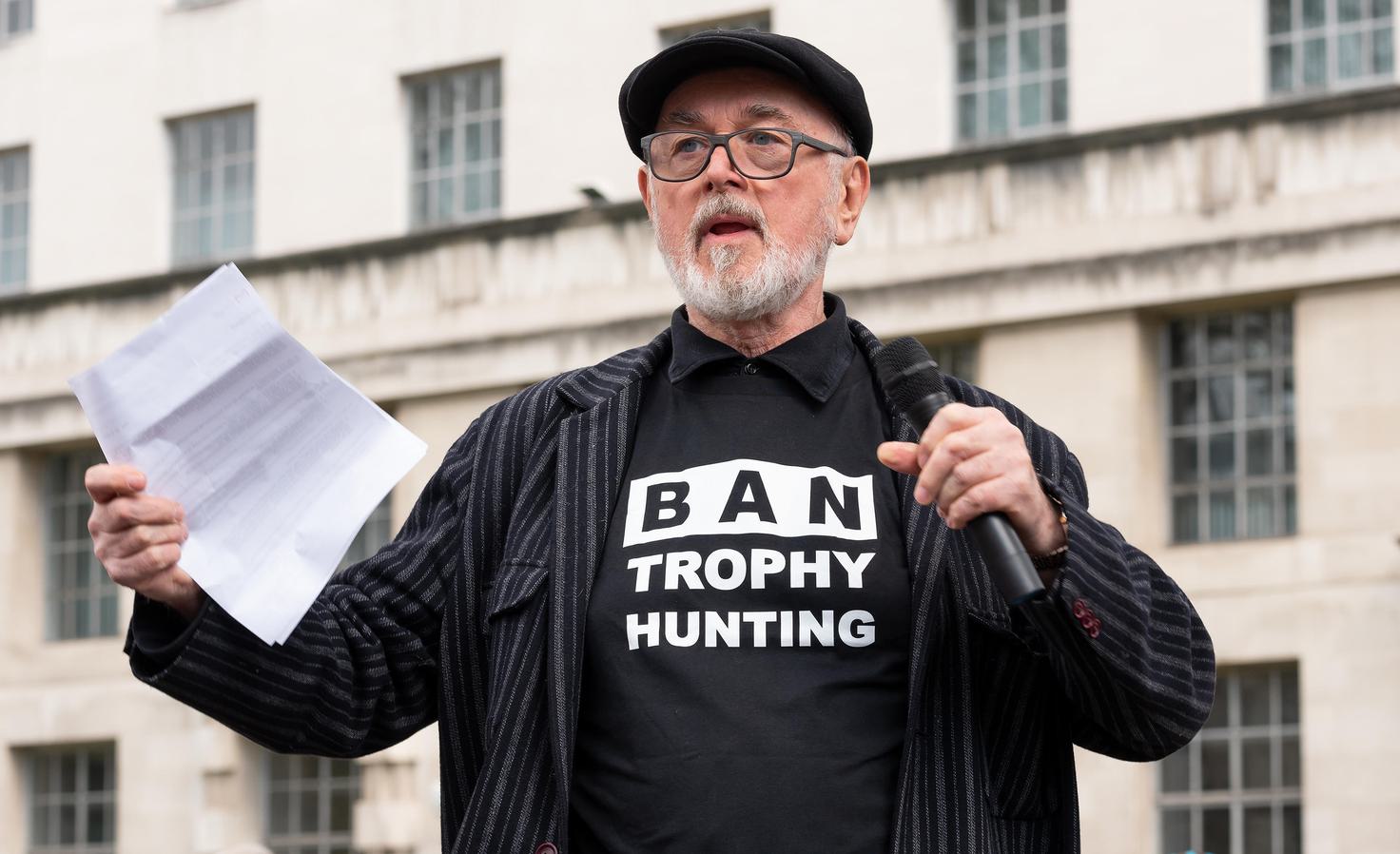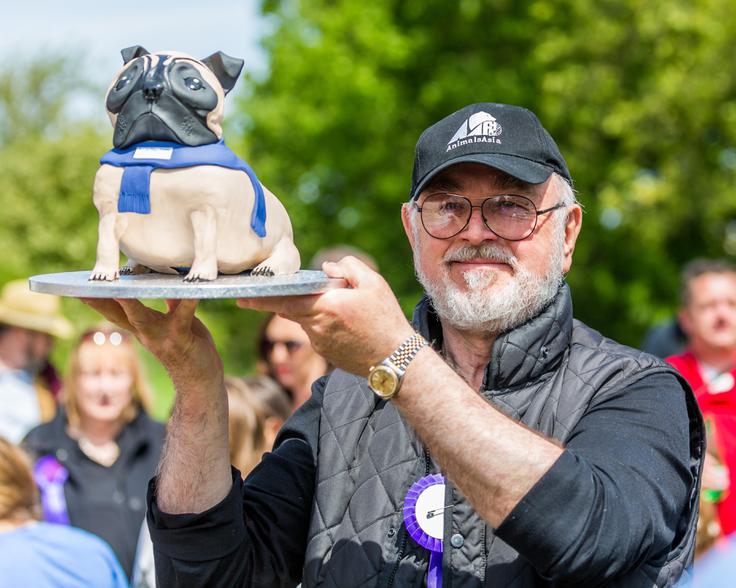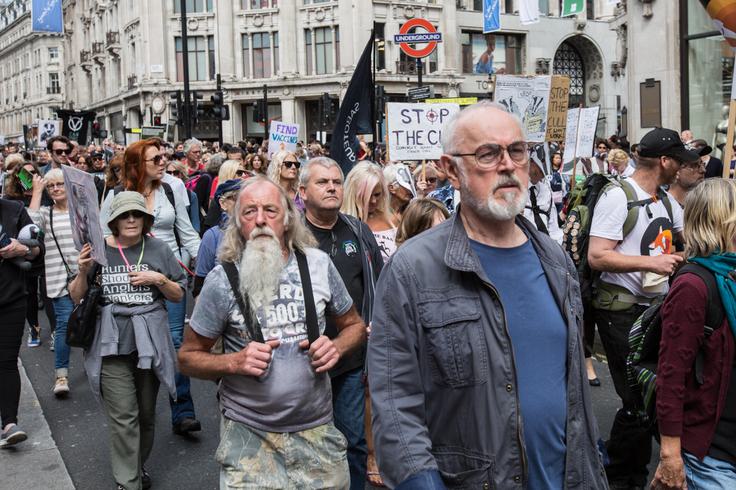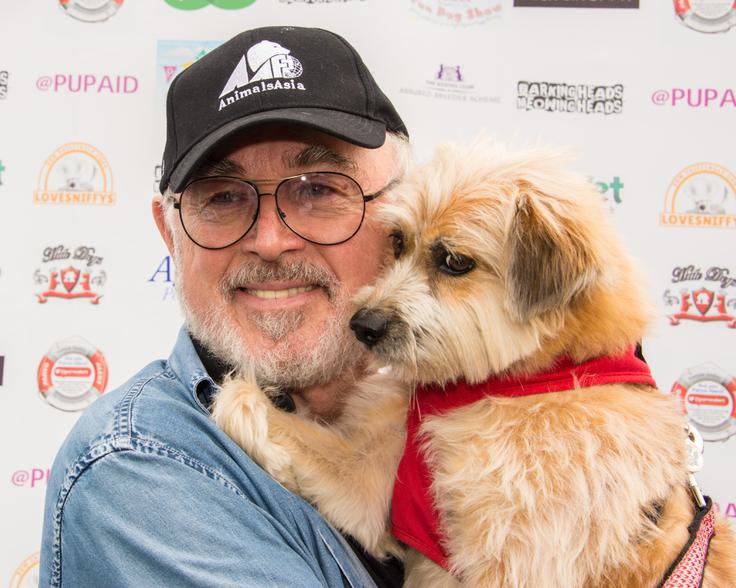
Words by Abi Scaife
Whatever your opinions on vegetarian or veganism, most people can agree that hunting animals for a ‘trophy’ is cruel. In many places, there are serious limitations, or even outright bans on hunting wild animals - but that isn’t the case everywhere.
Helping to set up the Campaign to Ban Trophy Hunting, which works to expose the truth about how unkind trophy hunting can be, is Peter Egan. An actor known for his work as Paul Ryman on ‘Ever Decreasing Circles’, as well as for playing the Marquess of Flintshire on ‘Downton Abbey’, Peter has gone on to become a huge advocate for animal life.
“My late wife, Myra was always incredibly committed to animal causes,” Peter tells Smiley News. “In many ways, she introduced me to compassion and empathy.”
We were able to speak with Peter not just about why he is supporting the Campaign to Ban Trophy Hunting, but also why he has dedicated so much of his life to ending animal cruelty.

“Human animals are very indulgent - we don't consider things beyond our personal appetites,” explains Peter. “I would certainly say that I was one of those people.”
For Peter, along with his late wife, one of the things that made him change his ways was a DJ - a beloved dog. DJ, so named because he looked like he was wearing a dinner jacket, was such a close companion of Peter’s, and so intelligent, that it changed his perception of animals forever.
“When I talked to him, he looked at me straight in the eyes and seemed to agree with everything I said,” explains Peter. “He was the major gatekeeper for me in terms of animal understanding and developing what I would call dimensioned compassion as opposed to selective compassion.”
Since then, Peter has gone on to be an ambassador for a number of animal charities - including Campaign to Ban Trophy Hunting.
“I think a huge amount of the problems in the world would be over if all humans began to identify and understand the fact that every single species with whom we share our wonderful planet are sentient.”

Peter has chosen to join the Campaign to Ban Trophy Hunting as an ambassador, because he is appalled at the fact that this still goes on. When he speaks, his passion is clear - and he has spent a lot of time thinking about why people continue to do something so clearly cruel.
“When you get into the pathological psychopathic entertainment that hunters get from seriously frightening animals, and then killing them for pleasure … that seemed to me to be the most awful representation of the human spirit as I could imagine,” says Peter.
“We have an extraordinary destructive ability. We are the single apex predator to interfere with every other species on earth.”
When people argue in favour of trophy hunting, one of the points they use is that it supposedly brings money to locals, from tourist hunters. In many places, including countries in Africa where tourists hunt big game, they must pay for a license to hunt an animal - but Peter says, from all his research, only a negligible portion goes to those nearby.
BornFree, a charity which helps to protect animals from exploitation internationally, found similar results through their research in 2019, and ‘The Lion’s Share’, a report prepared by Economists at Large for Humane Society International found that “while overall tourism is between 2.8% and 5.1% of GDP… the total economic contribution of trophy hunters is at most about 0.03% of GDP”.
So, we can be fairly confident that trophy hunting contributes very little to the local economy. Why, then, does it continue?

“It is an extremely, extremely profitable hobby for ultra-wealthy psychopaths,” says Peter. “It's a mixture of extremely wealthy donors, and [trophy hunters] in high places.”
Because of this, because there are influential people in high places who enjoy trophy hunting, it is all the more important to speak up. The biggest thing preventing trophy hunting from being banned, is that more people don’t realise what a big problem it is, and don’t realise how few measures are currently in place to prevent it from happening.
“[I want] on a very humane level, to bring a greater awareness to the general public, of the cruelty,” explains Peter. “One that we accept on a daily basis, and the extremity of that cruelty, which is people who make lots and lots of money out of killing beautiful creatures.”
Ultimately, the Campaign to Ban Trophy Hunting isn’t just about trophy hunting. That is its primary objective, but its effects ripple so far out, touching so many things, making it even more important. Ending trophy hunting will help conservation, help species return from the brink of extinction, and even have a positive effect on climate change.
“Kindness and compassion are the only thing that's going to save our planet.”
At Smiley Movement, we like to elevate the work of charities across the world. Here are three charities whose causes align with the themes in this article.
Four Paws UK. This charity is an animal welfare organisation, working globally to help animals in need. Learn more here.
Wildlife Justice Commission. This international foundation works to end animal trafficking around the globe. Find out more here.
Born Free. This is a wildlife conservation charity that’s passionate about wild animal welfare and Compassionate Conservation. Find out more here.